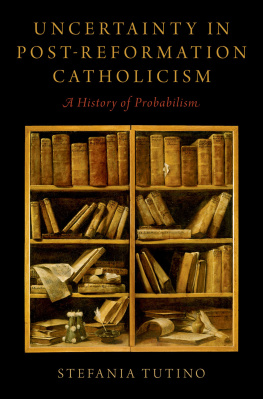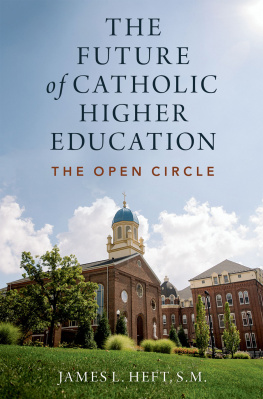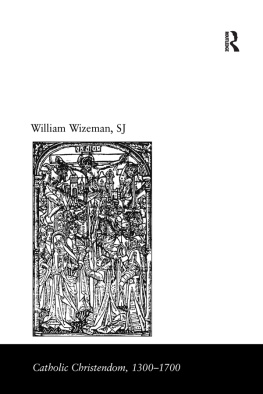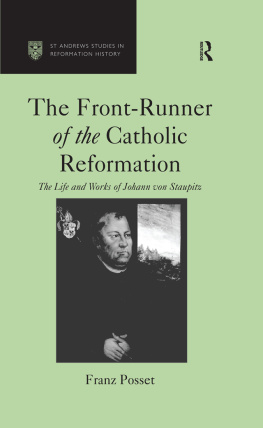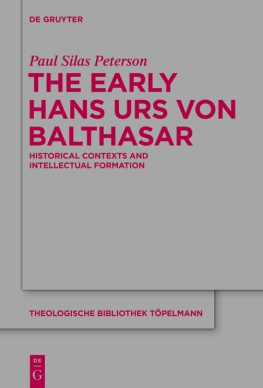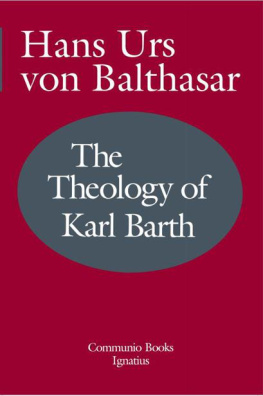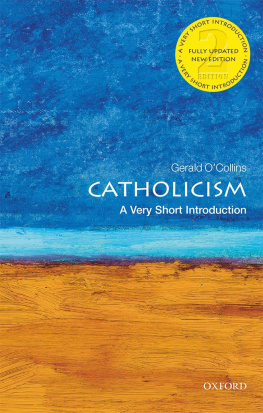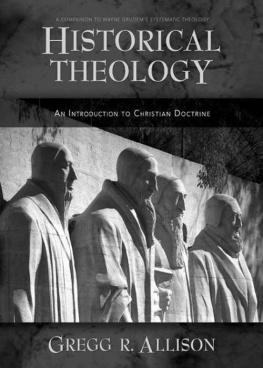Uncertainty in Post-Reformation Catholicism

Oxford University Press is a department of the University of Oxford. It furthers the Universitys objective of excellence in research, scholarship, and education by publishing worldwide. Oxford is a registered trade mark of Oxford University Press in the UK and certain other countries.
Published in the United States of America by Oxford University Press
198 Madison Avenue, New York, NY 10016, United States of America.
Oxford University Press 2018
All rights reserved. No part of this publication may be reproduced, stored in a retrieval system, or transmitted, in any form or by any means, without the prior permission in writing of Oxford University Press, or as expressly permitted by law, by license, or under terms agreed with the appropriate reproduction rights organization. Inquiries concerning reproduction outside the scope of the above should be sent to the Rights Department, Oxford University Press, at the address above.
You must not circulate this work in any other form and you must impose this same condition on any acquirer.
Library of Congress Cataloging-in-Publication Data
Names: Tutino, Stefania, author.
Title: Uncertainty in Post-Reformation Catholicism: a history of probabilism / Stefania Tutino.
Description: New York : Oxford University Press, 2018. | Includes bibliographical references and index.
Identifiers: LCCN 2017015376 (print) | LCCN 2017041844 (ebook) | ISBN 9780190694104 | ISBN 9780190694111 | ISBN 9780190694128 | ISBN 9780190694098 (alk. paper)
Subjects: LCSH: ProbabilismHistory. | JesuitsHistory. | Catholic ChurchDoctrinesHistory. | Christian ethicsCatholic authors.
Classification: LCC BJ1278.P76 (ebook) | LCC BJ1278.P76 T88 2018 (print) | DDC 241/.042dc23 LC record available at https://lccn.loc.gov/2017015376
Vedere, non aveva potuto vedere molte cose, il giudice DAndrea; ma certo moltissime ne aveva pensate, e quando il pensare pi triste, cio di notte. Il giudice DAndrea non poteva dormire. Passava quasi tutte le notti alla finestra a spazzolarsi una mano a quei duri gremiti suoi capelli da negro, con gli occhi alle stelle, placide e chiare le une come polle di luce, guizzanti e pungenti le altre; e metteva le pi vive in rapporti ideali di figure geometriche, di triangoli e di quadrati, e, socchiudendo le palpebre dietro le lenti, pigliava tra i peli delle ciglia la luce duna di quelle stelle, e tra locchio e la stella stabiliva il legame dun sottilissimo filo luminoso, e vi avviava lanima a passeggiare come un ragnetto smarrito. Il pensare cos di notte non conferisce molto alla salute. Larcana solennit che acquistano i pensieri produce quasi sempre, specie a certuni che hanno in s una certezza su la quale non possono riposare, la certezza di non poter nulla sapere e nulla credere non sapendo, qualche seria costipazione. Costipazione danima, sintende. E al giudice DAndrea, quando si faceva giorno, pareva una cosa buffa e atroce nello stesso tempo, chegli dovesse recarsi al suo ufficio dIstruzione ad amministrareper quel tanto che a lui toccavala giustizia ai piccoli poveri uomini feroci.
LUIGI PIRANDELLO, La Patente
Il fatto che se ne era andata: e soltanto i fatti contano, soltanto i fatti debbono contare. Noi siamo quel che facciamo. Le intenzioni, specialmente se buone, e i rimorsi, specialmente se giusti, ognuno, dentro di s, pu giocarseli come vuole, fino alla disintegrazione, alla follia. Ma un fatto un fatto: non ha contraddizioni, non ha ambiguit, non contiene il diverso e il contrario.
LEONARDO SCIASCIA, Candido, ovvero un sogno fatto in Sicilia
Contents
THIS BOOK PROVIDES a historical account of early modern probabilism and of its implications. First developed in the second half of the sixteenth century, probabilism represented a significant and controversial novelty in Catholic moral theology. Against a deep-seated theological tradition that defended the need for the strict application of moral rules, early modern probabilists (usually Jesuits) maintained that whenever it is not possible to identify with certainty the correct solution, the agent can legitimately follow a specific course of action if such course of action is supported by a probable opinion, however disputable the probable opinion in question might be.
As I show in this book, probabilism was virtually omnipresent in the theological, liturgical, political, intellectual, and cultural life of early modern European Catholics. In addition to being a significant component of early modern moral theology, probabilism became the venue in which early modern Catholic intellectuals examined fundamental epistemological questions, such as the nature of probability as opposed to certainty and the relationship between knowledge and moral responsibility. Moreover, the debates about probabilism became a catalyst for discussing the relationship between moral and political authority and the process by which legal and political norms are legitimized. Finally, early modern Catholic theologians used probabilism as a theoretical tool to engage with non-Christian and non-European traditions. For these reasons, I believe that in order to appreciate the historical implications of probabilism, we must understand this doctrine within the wider religious, intellectual, cultural, and political history of early modern Europe.
Until recently, the wide and deep implications of probabilism have been overshadowed by its sharp polemical edge. By the second half of the seventeenth century, probabilism had in fact become inextricably linked to the Society of Jesus and to a lax system of morality, which emphasized, and in some cases exploited, the elasticity of moral rules. Because of this, probabilism was at the center of a web of dramatic theological, institutional, political, and intellectual conflicts, and was the subject of either virulent antiprobabilist and anti-Jesuit propaganda (at times brilliant, as was the case with Pascals Provincial Letters) or scholarly indifference.
In recent times, numerous scholarscoming from different disciplines and pursuing different scholarly agendashave sought to recover the historical importance of early modern probabilism, and they have begun to revisit the old stereotype of the Jesuit probabilist theologian ready to twist the rigor of traditional morality simply for the sake of excusing any kind of lax behavior. Despite such recent surge in scholarly attention toward probabilism, however, to this day we do not have a historically accurate account of the development and significance of this doctrine. Thus, I decided to write this book as a contribution to this renewed interest in probabilism and with the aim of exploring the larger historical and epistemological implications of probabilism for the intellectual and cultural history of early modern Europe.
The central thesis of this book is that probabilism was not simply a way to justify morally lax behavior. Rather, early modern probabilist theologians realized that their world was characterized by many changes and novelties that traditional theology was not equipped to deal with, and that consequently provoked an exponential growth of uncertainties, doubts, and dilemmas. Thus, these theologians used probabilism as a means to integrate changes and novelties within the Catholic theological and intellectual system. Seen in this light, probabilism represented the theological, intellectual, and cultural result of their attempt to appreciate, come to terms with, and manage uncertainty, and at its theoretical culmination, probabilism became a manifestation of the most productive and creative epistemological and indeed hermeneutical force of theology. Moreover, probabilist theologians considered uncertainty not only a fundamental component of human knowledge, but also a constitutive element of the human condition. From this perspective, early modern probabilism can be seen as a synecdoche of the quintessentially human effort to know and to act within the limits of human finitude.

